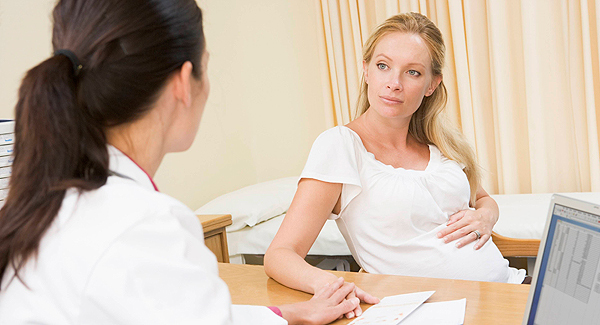Down syndrome screening during pregnancy is offered as a regular prenatal test. No screening procedure can be 100% accurate, but advances in technology have made screening for Down syndrome as well as several other chromosomal disorders highly effective. The advantage to screening for down syndrome test during pregnancy is knowing ahead of time and being able to prepare for a special needs child. A knowledgeable doctor or midwife will be able to walk you through the benefits and drawbacks of the different kinds of tests available.

Should I Screen for Down Syndrome?
This exists as a personal question for all expecting mothers. Some women want to know as soon as possible so they can prepare for a child with special needs. Other mothers don’t care and do not have the test. The risk of having a child with Down Syndrome is small; of all the mothers who opt for the screening tests, approximately 5% are identified of being at risk. Of these 5%, far fewer give birth to babies with Down Syndrome. Some factors increase the likelihood of a child having Down Syndrome including the mother’s age and family history. If you have an increased likelihood of having a baby with Down syndrome, you may wish to have an amniocentesis.
Types of Testing
A down syndrome test during pregnancy can be done through both non-invasive and invasive testing. Ultrasounds and blood tests are non-invasive and provide the most accurate results during the second trimester. An amniocentesis is a more invasive test as it involves withdrawing amniotic fluid from the uterus; however it can provide accurate results with a 99% success rate. Other invasive tests include CVS and PUBS. CVS or chorionic villus sampling, requires cells from the placenta. These cells are then analyzed at a lab; the test is usually done before the 14th week of pregnancy. It does carry a higher risk of miscarriage—approximately 1 in 100.
If you choose to begin with the non-invasive tests, and the tests return questioning or positive results, your healthcare professional will most likely recommend an invasive test to confirm the results.
When Can I Screen for Down Syndrome?
Accurate testing may be done as early as the 11th week. Typically, during the 11th and 13th weeks of pregnancy, mothers can opt to take the first trimester combined test, which requires a blood test and an ultrasound. The blood test looks for elevated levels of PAPP-A or pregnancy-associated plasma protein-A and hCG or human chorionic gonadotropin; unusual levels of these compounds can indicate the presence of Down syndrome.
The earlier you conduct a down syndrome test during pregnancy, the increased chances of a false positive exist. If you’d like to wait for more accurate results, you can take a two-part test that spans both the first and second trimesters. During the first trimester your OB will conduct and ultrasound and the PAPP-A test. Then, during the second trimester, he or she will order a quad test which measures four different indicators to provide very accurate results.
Ultimately, you must decide if this is information you want. Before conducting any procedure, your OB or midwife will discuss the pros and cons, and should specifically discuss any risks associated with a recommended invasive procedure. And while the risks may be unlikely, it’s up to you to weigh them for yourself and your baby.
[lamoud_Pregnancy_Calculator]My content[lamoud_Pregnancy_Calculator]





